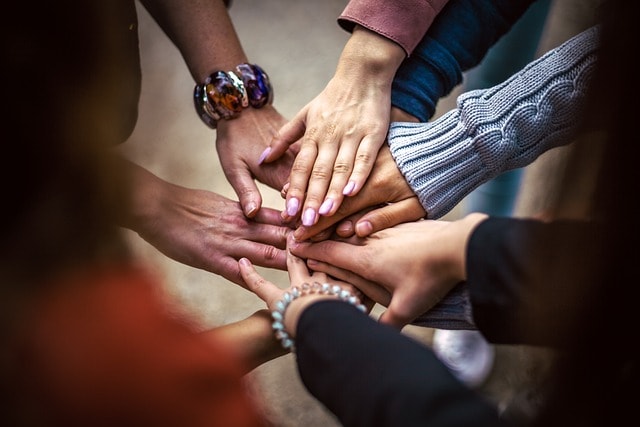What is National Women’s Small Business Month?
Every October, National Women’s Small Business Month celebrates the achievements of women in business and highlights their contributions to the economy. Women-owned small businesses are an essential part of our country. They create jobs and drive innovation.
The history of National Women’s Small Business Month began in 1988. The U.S. Congress passed a resolution recognizing women’s role in small businesses. Since then, this month has grown in significance. According to a 2021 report, women own about 42% of all U.S. businesses. This shows how vital they are to the economy.
Celebrating National Women’s Small Business Month raises awareness and encourages support for women entrepreneurs. Communities can help by shopping at local women-owned businesses, and schools can teach students about successful female business leaders.
Recognizing this month helps inspire future generations. Young girls see role models who succeed against the odds. Empowering women in business leads to a more robust economy for everyone.
What are some ways to Celebrate National Women’s Small Business Month?
Women and other small business owners can take several actions to celebrate National Women’s Small Business Month.
Shop at Women-Owned Businesses: One way to celebrate and support women-owned businesses is by shopping at these enterprises. By supporting these small businesses, you are directly contributing to the success and growth of women entrepreneurs. Show your support by shopping at women-owned businesses throughout October and beyond.
Organize Local Events: Communities can organize local events to celebrate women-owned small businesses. These can include fairs or markets featuring only female entrepreneurs. Such gatherings allow people to discover new products and services while supporting women in business.
Social Media Promotions: Businesses can run social media promotions during this month. They can highlight their stories and achievements online. Sharing posts with the hashtag #WomensSmallBusinessMonth helps spread awareness. This approach connects women entrepreneurs with a larger audience.
Workshops and Seminars: Hosting workshops and seminars is another excellent way to celebrate. These events can focus on skills like marketing, finance, or leadership. They provide valuable knowledge for aspiring female business owners, and participants gain insights that help them succeed in their ventures.
Collaborations: Women-owned small businesses can collaborate with other female entrepreneurs. Partnering for special promotions or joint events can create a stronger impact. This teamwork showcases the power of women supporting women in business.
Become a Mentor: Supporting women’s entrepreneurship by becoming a mentor is a rewarding way to share knowledge, experience, and guidance with aspiring female business owners. By offering support and advice, mentors can help women navigate the challenges of starting and growing their businesses, ultimately contributing to their success and empowerment in the entrepreneurial world. Mentoring also provides an opportunity to build a strong network and make a meaningful impact on the next generation of female leaders.
What resources are available for Women-Owned Businesses?
Whether starting a new business or supporting an existing one, women business owners can access various resources to support their enterprises.
SBA Programs
The Small Business Administration (SBA) plays a vital role in supporting women business owners. The SBA offers programs like the Women-Owned Small Business (WOSB) Federal Contracting Program, which helps female entrepreneurs access federal contracts and aims to level the playing field for underrepresented businesses.
Eligibility for SBA programs requires U.S. citizenship. Businesses must also operate primarily within the United States. This ensures that support goes to those who genuinely need it.
Small Business Development Centers (SBDCs)
Small Business Development Centers (SBDCs) offer valuable support for women business owners by providing resources, guidance, and training to help them start and grow their businesses. These centers often offer workshops, one-on-one counseling, and access to networking opportunities specifically tailored to the needs of women entrepreneurs.
SBDCs can also assist with developing business plans, securing financing, and navigating the complexities of running a small business. These organizations are crucial resources for empowering women to succeed in the business world.
Women’s Business Centers (WBCs)
Women’s Business Centers (WBCs) provide resources, training, and support specifically tailored to female entrepreneurs. These centers assist in various areas, such as business planning, financial management, marketing, and capital access.
WBCs are crucial in empowering women to start and grow their businesses by offering workshops, one-on-one counseling, networking opportunities, and access to funding sources. These centers are valuable assets in promoting gender equality and economic empowerment through entrepreneurship.
SCORE Resources for Women Entrepreneurs
SCORE offers a variety of resources specifically tailored to women entrepreneurs, including mentoring, workshops, webinars, and online tools. These resources can help women navigate the challenges of starting and growing a business, providing valuable guidance and support along the way. SCORE’s network of experienced business professionals can offer insights and advice to help women entrepreneurs succeed in their ventures.
Government Programs
Federal, state, and local government programs offer valuable resources for women business owners looking to start or grow their businesses. As mentioned, the SBA provides various resources at the federal level.
Many states offer grants, loans, and mentorship programs for women entrepreneurs. For example, the California Governor’s Office of Business and Economic Development (GO-Biz) has initiatives like the California Small Business Loan Guarantee Program, which helps women-owned small businesses access capital.
At the local level, city and county governments often have resources like business incubators, networking events, and training programs specifically designed for women entrepreneurs. Women business owners can gain valuable support to achieve their entrepreneurial goals by taking advantage of these government programs at all levels.
Women’s Business Enterprise National Council (WBENC)
The Women’s Business Enterprise National Council (WBENC) offers various support resources for women-owned businesses, including access to networking events, mentorship programs, educational workshops, and certification assistance. Through these initiatives, women entrepreneurs can connect with other business owners, gain valuable knowledge and skills, and obtain the certification needed to access government contracts and corporate procurement opportunities.
Additionally, WBENC provides resources for women-owned businesses looking to scale and grow, such as access to funding opportunities, strategic partnerships, and marketing support. These support resources are crucial in empowering women entrepreneurs and helping them succeed in the business world.
What does it mean to be certified as a Woman-Owned Business?
A certified women-owned business is at least 51% owned, operated, and controlled by one or more women. To be officially recognized as a women-owned business, the company must undergo a certification process that verifies the ownership and control by women. This certification can provide opportunities for women-owned businesses to participate in government contracts, access resources, and gain visibility in the marketplace.
There are two primary certifications for women-owned businesses.
Women’s Business Enterprise (WBE)
This certification helps get private enterprises and state and local government contracts and grants. The eligibility requirements are:
- One or more women own at least 51% of the company.
- A for-profit company operating in the U.S.
- Owned by women who are U.S. citizens or legal residents.
- Governed by a board of women (where applicable).
Women-Owned Small Business (WOSB)
This designation helps with getting federal government grants and contracts. There is a subset of the certification, Economically Disadvantaged Women-Owned Small Business (EDWOSB). EDWOSB eligibility requirements are:
- Meet all the requirements of the women’s contracting program.
- Be owned and controlled by one or more women, each with a personal net worth of less than $750,000.
- Be owned and controlled by one or more women, each with $350,000 or less in adjusted gross income averaged over the previous three years.
- Be owned and controlled by one or more women, each with $6 million or less in personal assets.
There are several ways for a woman-owned small business to apply for certification. You can visit the U.S. Small Business Administration (SBA) to apply for certification.
Female entrepreneurs can also go through the Department of Veterans Affairs Center for Verification and Evaluation (CVE) or a third-party certifier (TPC). The four options for TPCs are:
- Women’s Business Enterprise National Council (WBENC).
- National Women Business Owners Corporation (NWBOC).
- U.S. Women’s Chamber of Commerce (USWCC).
- El Paso Hispanic Chamber of Commerce (EPHCC).
Being certified offers many advantages. Certified Woman-Owned Businesses can access special grants and funding opportunities. Some government contracts are reserved for these businesses. This opens doors to new clients and projects.
Certification can enhance credibility. Customers often prefer to support women-owned companies, and they see value in promoting diversity in the marketplace.
Are there funding options to help Women Business Owners succeed?
Women entrepreneurs often seek funding to grow their business ventures. Many options exist, including grants, loans, and investors. The Small Business Administration (SBA) offers specific programs for female entrepreneurship. These programs provide capital and support tailored for women business owners.
Grants: Numerous grants are available for women business owners. Organizations like the Amber Grant and the Eileen Fisher Women-Owned Business Grant provide financial support to help women entrepreneurs succeed.
Business Loans for Women: Some lenders offer specialized business loans for women to help overcome the gender gap in capital access. Although women comprise a significant percentage of small business owners, many still have unequal access to funding. Per the SBA, women needed a male relative to co-sign any business loan until 1988. While the Women’s Business Ownership Act of that same year helped change things, women still face challenges securing funding. These loan programs are designed to correct that imbalance and promote gender parity in entrepreneurship and business financing.
Investment Opportunities: Investing in female entrepreneurship is growing in popularity. More venture capital firms focus on funding women business owners, reflecting a commitment to diversity in the business world. Women entrepreneurs can leverage these opportunities to advance their businesses.
National Women’s Small Business Month – Final Thoughts
National Women’s Small Business Month is a time to recognize and celebrate the achievements of women entrepreneurs. You learned about ways to celebrate, the resources available, and what it means to be certified as a woman-owned business. Funding options are out there to help you thrive.
Embrace this month as an opportunity to support and elevate your business. Connect with fellow women entrepreneurs, utilize available resources, and explore funding options. Your journey matters. Share your story and inspire others. Let’s uplift each other and make a lasting impact together.



















